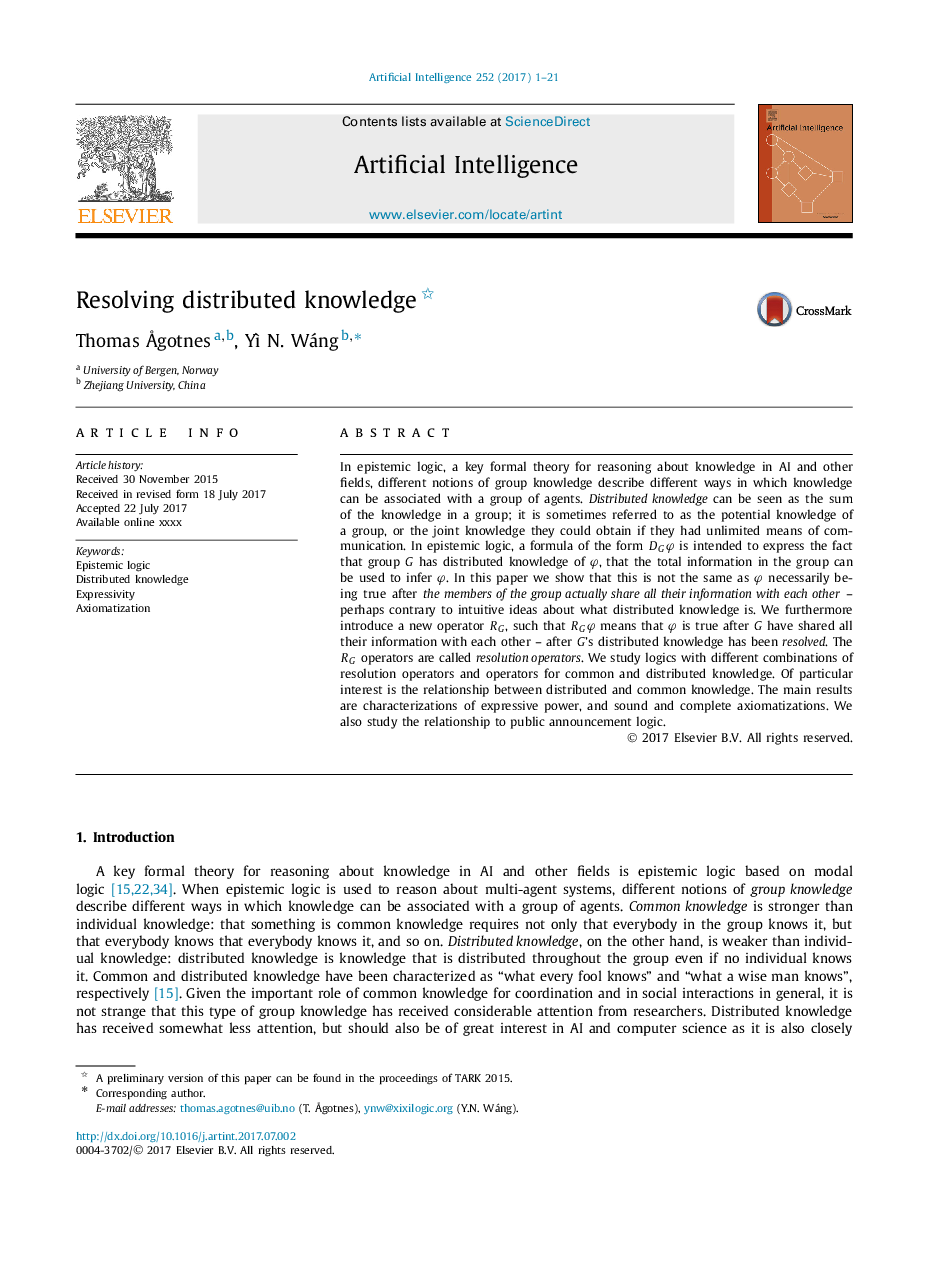| Article ID | Journal | Published Year | Pages | File Type |
|---|---|---|---|---|
| 4942026 | Artificial Intelligence | 2017 | 21 Pages |
Abstract
In epistemic logic, a key formal theory for reasoning about knowledge in AI and other fields, different notions of group knowledge describe different ways in which knowledge can be associated with a group of agents. Distributed knowledge can be seen as the sum of the knowledge in a group; it is sometimes referred to as the potential knowledge of a group, or the joint knowledge they could obtain if they had unlimited means of communication. In epistemic logic, a formula of the form DGÏ is intended to express the fact that group G has distributed knowledge of Ï, that the total information in the group can be used to infer Ï. In this paper we show that this is not the same as Ï necessarily being true after the members of the group actually share all their information with each other - perhaps contrary to intuitive ideas about what distributed knowledge is. We furthermore introduce a new operator RG, such that RGÏ means that Ï is true after G have shared all their information with each other - after G's distributed knowledge has been resolved. The RG operators are called resolution operators. We study logics with different combinations of resolution operators and operators for common and distributed knowledge. Of particular interest is the relationship between distributed and common knowledge. The main results are characterizations of expressive power, and sound and complete axiomatizations. We also study the relationship to public announcement logic.
Related Topics
Physical Sciences and Engineering
Computer Science
Artificial Intelligence
Authors
Thomas Ã
gotnes, Yì N. Wáng,
